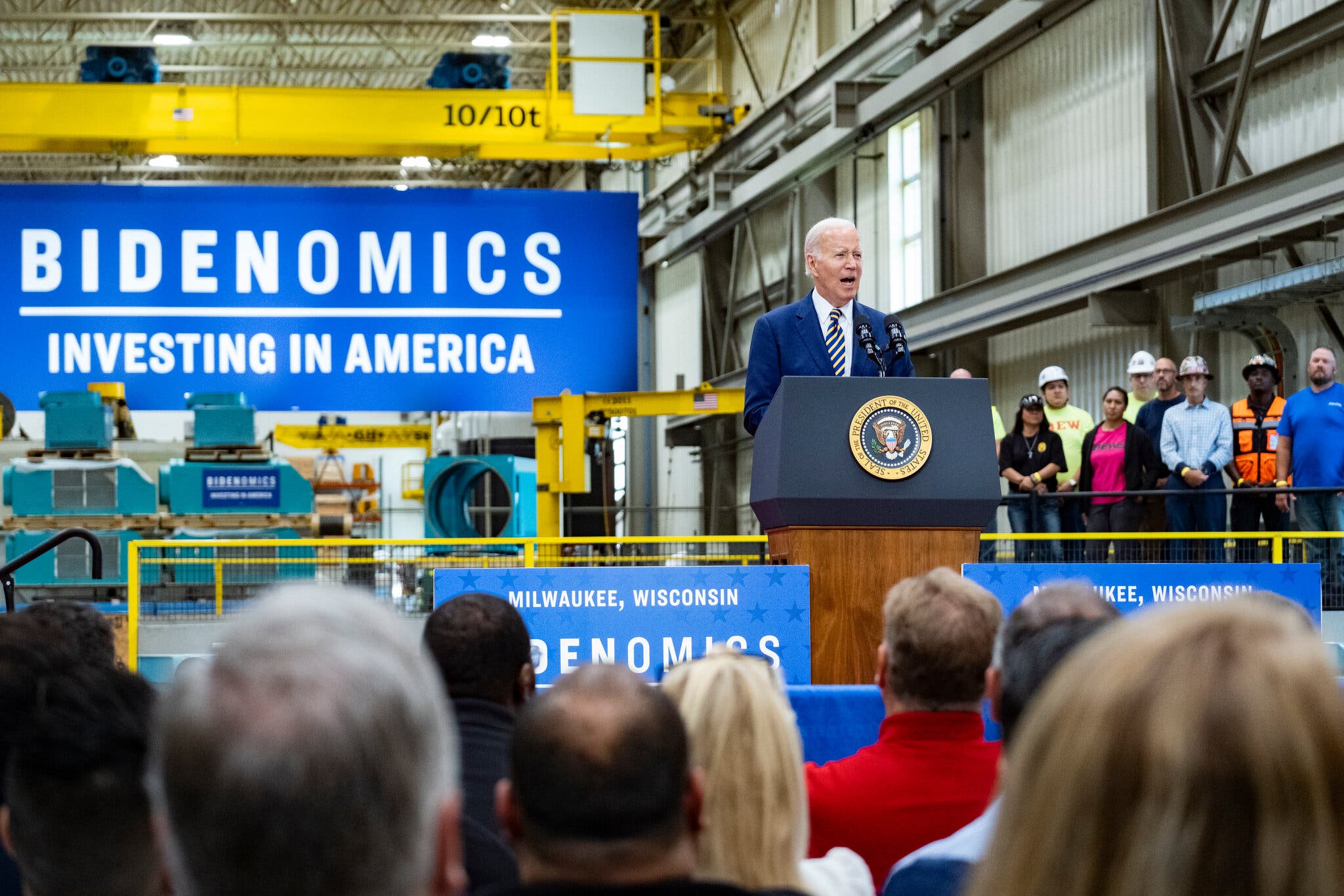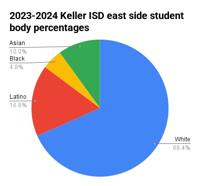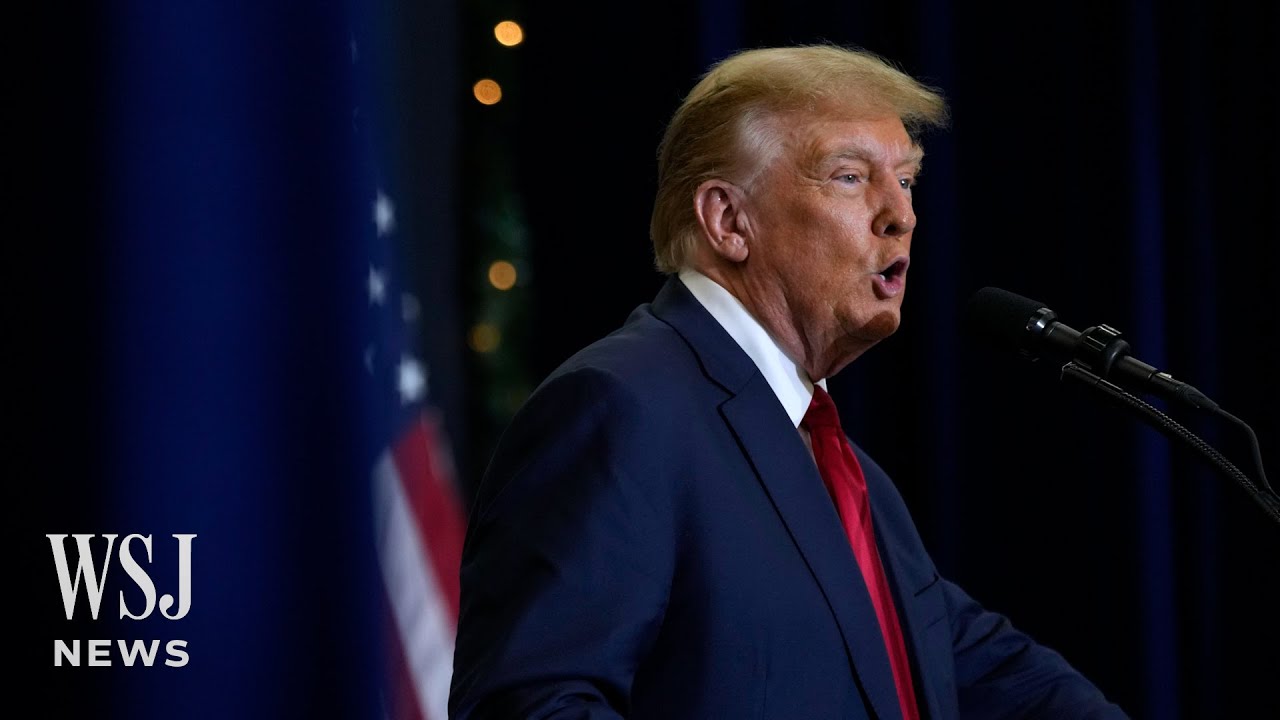Analyzing The Economic Challenges Facing The Biden Administration

Table of Contents
Inflation and its Impact on American Households
Inflation, a persistent increase in the general price level of goods and services, has become a defining feature of the current economic landscape. The current inflation rate, while fluctuating, remains significantly higher than the Federal Reserve's target of 2%, echoing similar inflationary periods throughout history, albeit with unique characteristics. Several factors contribute to this surge. Supply chain disruptions, stemming from the pandemic and geopolitical tensions, have constricted the flow of goods, leading to shortages and price increases. Simultaneously, increased consumer demand, fueled by government stimulus and pent-up savings, has further exacerbated inflationary pressures. Finally, soaring energy prices, driven by global events and domestic policy, have added another layer of complexity to the situation.
The impact of inflation is far-reaching and disproportionately affects lower-income households.
- Rising prices of essential goods: Food, energy, and housing costs have skyrocketed, eroding purchasing power for many families.
- Decreased purchasing power: A dollar buys less than it did a year ago, forcing families to make difficult choices between necessities.
- Increased pressure on the Federal Reserve: The Federal Reserve is tasked with taming inflation through interest rate hikes, a move that can potentially slow economic growth and increase borrowing costs.
- Potential impact on consumer confidence and spending: High inflation erodes consumer confidence, potentially leading to reduced spending and slowing economic growth.
Supply Chain Disruptions and Their Economic Ripple Effects
Global supply chains, the intricate networks that deliver goods from manufacturers to consumers, have been severely strained in recent years. The COVID-19 pandemic exposed vulnerabilities within these systems, leading to widespread shortages, delays, and increased costs. These disruptions are not merely logistical problems; they have profound economic consequences.
The impact extends beyond the consumer level, affecting businesses of all sizes.
- Increased shipping costs: The price of transporting goods has skyrocketed, increasing the cost of production and ultimately the price paid by consumers.
- Product shortages: Businesses struggle to obtain necessary components and raw materials, leading to production slowdowns and empty shelves.
- Impact on manufacturing and production: Manufacturing and production have been significantly hampered, affecting overall economic output.
- Geopolitical factors influencing supply chains: Geopolitical instability and trade tensions further complicate the already complex supply chain landscape.
The Biden administration has attempted to address these issues through infrastructure investments aimed at improving transportation networks and modernizing logistics. However, resolving these deeply entrenched global challenges requires sustained effort and international cooperation.
The National Debt and Fiscal Policy
The US national debt, the total amount of money the government owes, has reached unprecedented levels. Its continuous growth trajectory poses significant long-term economic risks. A high national debt can lead to increased interest rates, hindering economic growth and placing a burden on future generations.
The Biden administration's fiscal policies, including significant spending on infrastructure and social programs, have contributed to the increasing national debt.
- The role of government spending and taxation: The balance between government spending and taxation is crucial in managing the debt. Increased spending without corresponding increases in revenue leads to higher debt levels.
- Potential risks of high national debt levels: High debt levels can lead to reduced credit ratings, higher interest rates, and crowding out of private investment.
- Debate surrounding fiscal policy solutions: There's ongoing debate about the appropriate level of government spending, taxation, and the best strategies for debt reduction.
- Comparison to historical debt levels and economic performance: Analyzing historical trends can offer valuable insights into the relationship between national debt and economic performance.
Energy Prices and Energy Security
Energy prices have experienced significant volatility in recent years, impacting businesses, consumers, and overall inflation. The Biden administration's energy policies, aimed at transitioning to cleaner energy sources while ensuring energy security, are central to this challenge.
- The role of fossil fuels versus renewable energy: The debate over the optimal balance between fossil fuels and renewable energy sources continues to shape energy policy.
- Impact of global energy markets: Global events and geopolitical tensions significantly influence energy prices and supply.
- Debate over energy independence and climate change: Balancing energy independence with climate change mitigation goals presents a complex challenge.
- Government incentives for clean energy: Government incentives and investments in renewable energy technologies are crucial for the transition to a cleaner energy future.
The Labor Market and Unemployment
While the unemployment rate has fallen, a comprehensive analysis of the labor market reveals nuanced challenges. Automation and the skills gap contribute to persistent unemployment and wage stagnation in certain sectors. Addressing these issues requires investments in education, training, and workforce development.
Charting a Course Through Economic Uncertainty: A Call to Action
The economic challenges facing the Biden administration—inflation, supply chain disruptions, the national debt, and energy prices—are interconnected and require comprehensive solutions. The administration's responses have yielded some successes, but significant challenges remain. A balanced approach, combining short-term relief measures with long-term structural reforms, is crucial to navigate this turbulent economic landscape.
To ensure a prosperous future, it is vital that citizens remain informed about the economic challenges facing the Biden administration and actively engage in civic discourse. Contact your elected officials, research policy proposals, and participate in community discussions to promote effective and equitable solutions. Your voice matters in shaping the economic policies that will affect generations to come.

Featured Posts
-
 The Tory Party And Reform Uk A Battle For The Future
May 03, 2025
The Tory Party And Reform Uk A Battle For The Future
May 03, 2025 -
 Lotto Results Wednesday April 30 2025
May 03, 2025
Lotto Results Wednesday April 30 2025
May 03, 2025 -
 Gewinnzahlen Lotto 6aus49 Vom 12 April 2025 Jetzt Ueberpruefen
May 03, 2025
Gewinnzahlen Lotto 6aus49 Vom 12 April 2025 Jetzt Ueberpruefen
May 03, 2025 -
 Splitting Keller Isd A Setback For Progress And Unity
May 03, 2025
Splitting Keller Isd A Setback For Progress And Unity
May 03, 2025 -
 Examining Maines Inaugural Post Election Audit Pilot
May 03, 2025
Examining Maines Inaugural Post Election Audit Pilot
May 03, 2025
